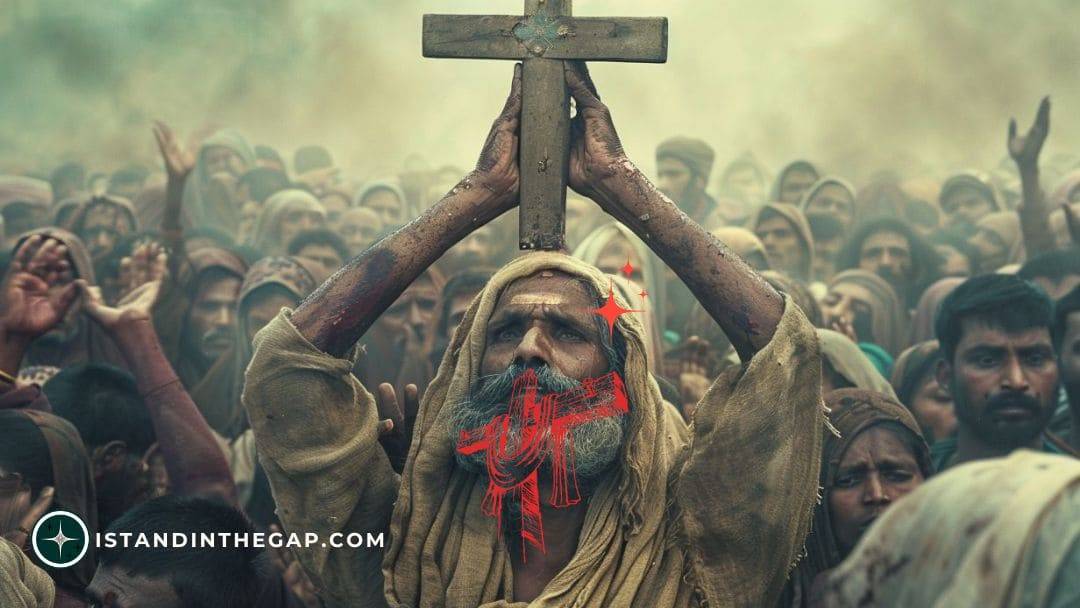Christian persecution in India is a pressing issue that often goes unnoticed. From discrimination and violence to restrictions on religious freedom, the types of persecution faced by Christians in India are alarming.
The role of the Indian government, religious nationalism, and Hindu extremism all play a part in this. The consequences are devastating, impacting individuals, communities, and Indian society as a whole.
It is crucial to address and end this persecution. This article will explore the truth about Christian persecution in India and provide ways to take action and stand in solidarity with those affected.
Key Takeaways:
- Christian persecution in India takes many forms, including physical violence, discrimination, and restrictions on religious practices.
- The Indian government’s support for religious nationalism and Hindu extremism contributes to the ongoing persecution of Christians in India.
- Individuals can help stop Christian persecution in India by raising awareness, supporting organizations, and standing in solidarity with persecuted Christians.
What Is Christian Persecution in India?
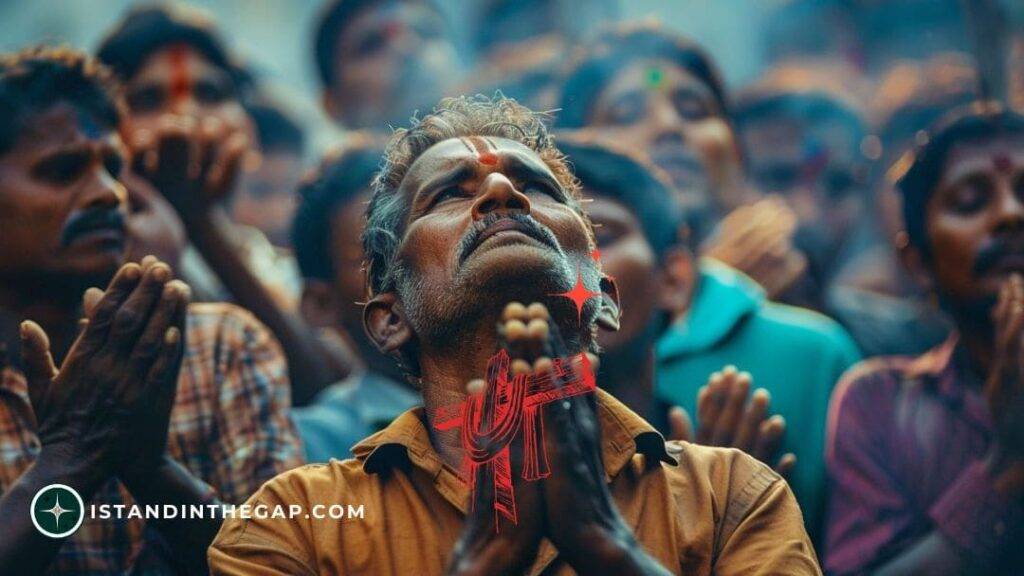
Christian persecution in India refers to the systemic and targeted violence, discrimination, and repression faced by Christians and other religious minorities, often orchestrated by extremist groups and facilitated by the current political climate under Prime Minister Narendra Modi’s administration.
What Are the Types of Persecution Faced by Christians in India?
Christians in India face various types of persecution, including:
- Physical attacks,
- Mob violence,
- Forced conversions, and
- Social ostracization.
Physical attacks on Christians often stem from religious extremists who aim to intimidate and suppress their faith.
Instances of mob violence have been reported where Christian communities are targeted without provocation, leading to fear and insecurity among believers.
Forced conversions, often orchestrated by radical groups, put Christians in a vulnerable position, coercing them to abandon their beliefs under duress.
Social ostracization further isolates Christians, hindering their participation in society and leading to discrimination in employment, education, and other essential areas.
Legal actions, though present, sometimes lack effectiveness in addressing these issues, leaving many Christians without adequate protection or recourse. The pervasive nature of these persecutions not only infringes on religious freedom but also impacts the daily lives and well-being of Christians across the country.
Why Is Christian Persecution in India Happening?
Christian persecution in India is occurring due to a combination of religious nationalism, the rise of Hindutva ideology, and the political influence of the BJP and Hindu extremist organizations, which propagate religious intolerance and division.
What Is the Role of the Indian Government in Christian Persecution?
The Indian government, particularly under the BJP majority, has contributed to Christian persecution through the implementation of anti-conversion laws and a broader authoritarian approach to religious governance.
These anti-conversion laws, adopted by several Indian states, restrict individuals from converting to another religion without government approval, thereby infringing upon the fundamental right to freedom of religion.
Such legislation not only fosters a climate of fear and discrimination against religious minorities but also emboldens extremists to target and harass vulnerable communities.
In addition to legal measures, the political rhetoric employed by certain leaders further fuels religious intolerance.
Statements portraying Christianity as a foreign, detrimental influence and equating religious conversion with forced or fraudulent means incite hostility towards Christians.
How Do Religious Nationalism and Hindu Extremism Contribute to Christian Persecution?
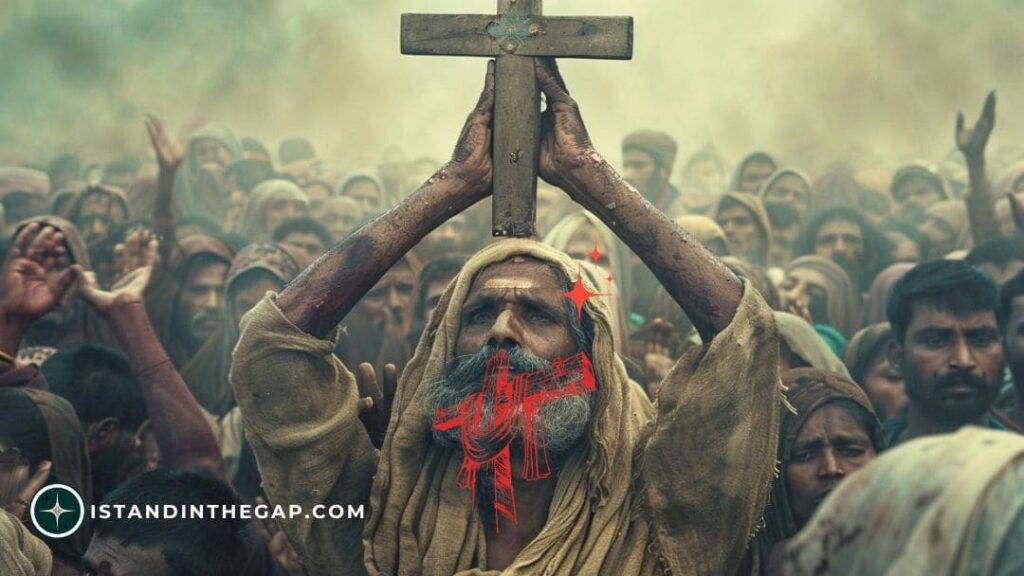
Religious nationalism and Hindu extremism, driven by organizations like RSS and Bajrang Dal, contribute significantly to Christian persecution through hate speeches, social media campaigns, and violent attacks.
These extremist groups often target minority communities, creating an atmosphere of fear and insecurity among them. Reports have documented instances where individuals have been physically assaulted or even killed due to their religious beliefs.
The spread of hate speech not only affects the immediate victims but also has a wider impact on communal harmony, polarizing societies and fostering mistrust among different religious groups.
What Are the Consequences of Christian Persecution in India?
The consequences of Christian persecution in India extend beyond immediate physical and emotional harm to individuals; it undermines the principles of democracy, religious equality, and social cohesion, drawing attention and condemnation from global Christian Relief organizations and leaders like David Curry.
How Does Christian Persecution Affect the Lives of Individuals and Communities?
Christian persecution incidents, such as the attacks on the Sacred Heart Church and individuals like Istuti and Priya Sharma, profoundly affect the lives of victims and their communities, causing fear, displacement, and loss of livelihoods.
The psychological toll endured by those who have faced persecution cannot be understated.
Many experience deep trauma, anxiety, and post-traumatic stress disorder, often leading to long-term mental health struggles. On a societal level, these incidents create a climate of fear and division, eroding trust and cohesion within communities.
Economically, the fallout from such persecution can be devastating. Victims often lose their sources of income, businesses suffer, and families struggle to make ends meet.
This economic instability can perpetuate cycles of poverty and further marginalize already vulnerable populations.
What Is the Impact of Christian Persecution on the Indian Society?
The impact of Christian persecution on Indian society includes increasing religious intolerance, the potential for civil unrest, and the exacerbation of ethnic conflicts, drawing scrutiny from both national and international human rights groups.
At its core, religious persecution not only threatens the freedom of individuals to practice their faith but also undermines the very fabric of social cohesion.
When one group is targeted based on their beliefs, it sets a dangerous precedent for discord and division within communities. Trust between different religious groups deteriorates, leading to a breakdown in interfaith dialogue and cooperation.
Such incidents not only tarnish the reputation of India on the global stage but also raise concerns about the country’s commitment to upholding secular values and protecting the rights of its religious minorities.
Reports from reputable human rights organizations highlight the urgent need to address these issues to promote harmonious coexistence and respect for religious diversity.
What Can You Do to Help Stop Christian Persecution in India?
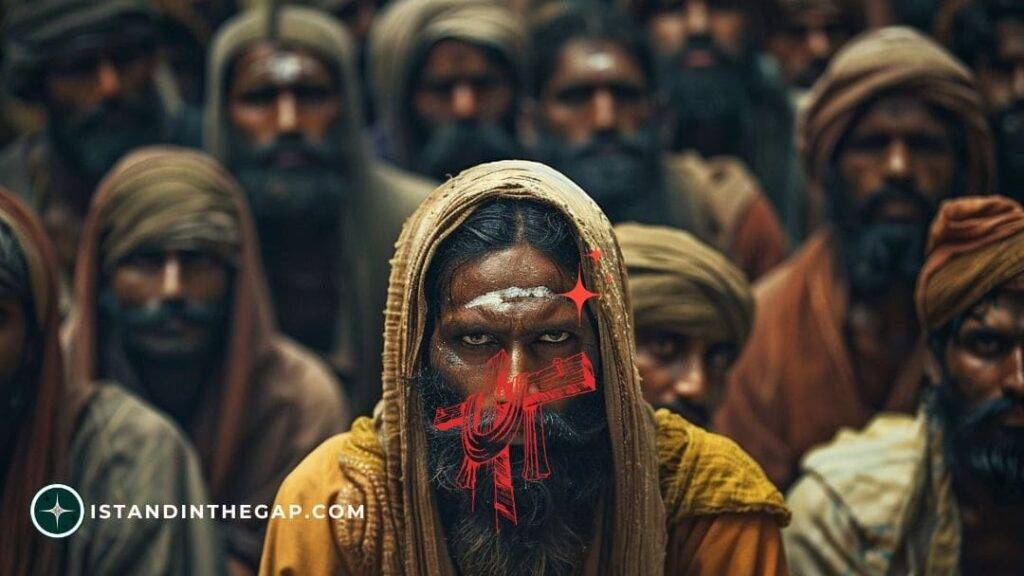
To help stop Christian persecution in India, individuals can support advocacy groups like Open Doors, raise awareness about the issue, and promote religious equality through various platforms and initiatives.
How Can You Raise Awareness about Christian Persecution in India?
Raising awareness about Christian persecution in India can be effectively achieved through the work of watchdog groups like Reporters Without Borders, utilizing the Press Freedom Index, and leveraging social media platforms.
Watchdog groups such as Reporters Without Borders play a vital role in monitoring and exposing press freedom violations, shedding light on incidents of persecution that might otherwise go unnoticed.
By using tools like the Press Freedom Index, these organizations can quantify and rank levels of media freedom across different countries, providing valuable insights into the state of journalism and free speech.
- By sharing reliable news sources and articles related to the issue.
- By engaging with influencers and organizations that advocate for press freedom and human rights, and
- By creating compelling content that educates and inspires others to take action.
- By utilizing the power of hashtags and trending topics to reach a wider audience and spark conversations around the topic of persecution.
- By harnessing the reach and immediacy of social media platforms, individuals can amplify their message and mobilize support for those affected by religious persecution in India.
What Are Some Organizations and Initiatives Working to Combat Christian Persecution in India?
Several organizations and initiatives, such as the United Christian Forum, Global Christian Relief, and Open Doors partner groups, are actively working to combat Christian persecution in India.
These organizations have implemented various programs and campaigns to raise awareness about the challenges faced by Christians in India and provide support to those affected.
For example, the United Christian Forum organizes rallies, peaceful protests, and advocacy campaigns to highlight the issue on both national and international platforms.
Global Christian Relief focuses on providing direct aid to persecuted Christians, offering humanitarian assistance, legal aid, and counseling services to those in need. Their success stories include helping families rebuild their lives after facing violence and discrimination.
Open Doors and other partner groups work tirelessly to strengthen the Christian community in India through the distribution of Bibles, training programs, and emergency relief efforts. They have made significant progress in advocating for religious freedom and supporting persecuted believers.
If you want to support these initiatives, you can consider volunteering, donating, or participating in awareness-raising events organized by these organizations.
What Are Some Practical Ways You Can Support and Stand in Solidarity with Persecuted Christians in India?
Practical ways to support and stand in solidarity with persecuted Christians in India include making donations, volunteering with advocacy groups, and actively promoting religious freedom in your community.
Donating to organizations like Open Doors or Persecution Relief can provide immediate assistance to those in need. You can also consider volunteering at local shelters or community centers that support persecuted Christians.
Advocating for policy changes that protect religious minorities in India can have a lasting impact on their safety and rights. By joining campaigns, signing petitions, and spreading awareness on social media, you can amplify the voices of those facing persecution.
Why Is It Important to Address and End Christian Persecution in India?
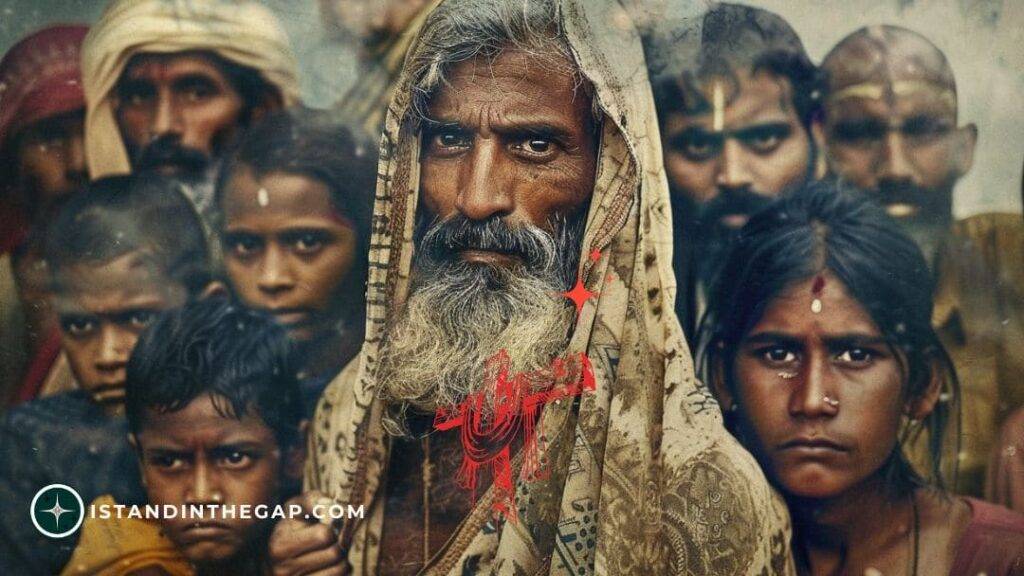
Addressing and ending Christian persecution in India is crucial for upholding the principles of democracy, protecting human rights, and fostering a society that respects religious differences and promotes harmony among all political parties and communities.
What Are the Implications of Ignoring or Downplaying Christian Persecution in India?
Ignoring or downplaying Christian persecution in India can lead to increased repression and authoritarianism, drawing negative attention from Western powers and potentially affecting economic power plays.
Political instability may arise due to the suppression of religious freedoms, leading to internal conflicts and a weakening of the democratic fabric.
This can strain international relations with countries that advocate for human rights and religious freedom, potentially tarnishing India’s global reputation.
Economically, such inaction could deter foreign investors who value stability and adherence to human rights standards, impacting trade and foreign direct investment.
How Does Standing Up Against Christian Persecution Align with Christian Values and Principles?
Standing up against Christian persecution aligns with Christian values and principles by advocating for religious equality, justice, and solidarity as emphasized by numerous Christian leaders and teachings.
Christians are called upon to love their neighbors as themselves, to stand up for those who are oppressed, and to defend the rights of the persecuted. The Bible contains multiple verses that underscore the importance of protecting the vulnerable and standing against injustice.
Notable Christian figures such as Pope Francis, Archbishop Desmond Tutu, and Martin Luther King Jr. have spoken out strongly against persecution in all its forms, urging believers to actively work toward peace and justice.
Their teachings serve as powerful reminders of the duty Christians have to oppose discrimination and violence.
Conclusion
Addressing and ending Christian persecution in India is not only a matter of human rights but also a critical step toward fostering advocacy for religious tolerance and a more inclusive society.
It is imperative for individuals, organizations, and governments to come together in a united front to combat persecution and promote religious harmony. Through collective efforts, awareness can be raised about the importance of respecting all faiths and beliefs, creating a more tolerant and understanding environment.
By working hand in hand, these stakeholders can implement measures to protect the rights of minority religious communities and ensure equal treatment for all individuals, regardless of their religious affiliations.
Frequently Asked Questions
What is the shocking truth about Christian persecution in India?
The shocking truth is that India has seen a significant rise in religious violence and persecution against Christians in recent years. According to a report by Open Doors, India ranks as the 10th worst country for Christian persecution in the world.
Who is responsible for the persecution of Christians in India?
While there are various groups and individuals responsible for the persecution, much of the violence and discrimination against Christians comes from Hindu extremists who view Christianity as a threat to their dominant religion.
What forms of persecution do Christians face in India?
Christians in India face various forms of persecution, including physical violence, forced conversions, discrimination, and economic boycotts. Churches and Christian gatherings are also often targeted and attacked.
What can I do to help address the issue of Christian persecution in India?
There are several ways you can help, such as educating yourself and others about the issue, supporting organizations that provide aid and advocacy for persecuted Christians, and praying for those who are suffering. You can also contact your government representatives and urge them to take action.
Are there any resources available for those who want to learn more about Christian persecution in India?
Yes, there are several organizations and websites dedicated to raising awareness about Christian persecution in India and providing resources for those who want to get involved. Some recommended resources include Open Doors, International Christian Concern, and Christian Solidarity Worldwide.
Is it safe for Christians to visit or live in India?
While there is always a risk of persecution, many Christians still live and work in India without facing any issues. It’s essential to research and exercise caution, especially in areas with a higher risk of violence towards Christians. Overall, it’s best to consult with local authorities and Christian organizations before traveling to India.

